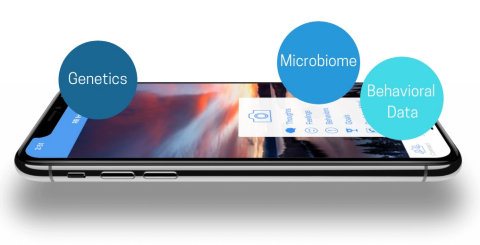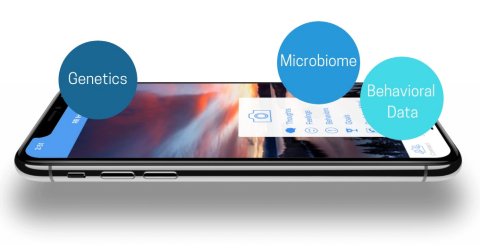CHAPEL HILL, N.C.--(BUSINESS WIRE)--Beginning today, people with binge-eating disorder or bulimia nervosa can join a novel research study using the Recovery Record app and Apple Watch. The study, led by UNC Center of Excellence for Eating Disorders researchers, aims to predict and prevent binge-eating episodes before they happen.
Binge eating is common, life disrupting, and treatable; however, access to affordable and effective treatments has been lacking. Using Apple Watch technology and a cognitive-behavioral framework, this study aims to generate new insights into the causes of binge eating and empower individuals with personalized interventions that can be accessed on Apple Watch and iPhone.
“This is a unique study that will accelerate progress toward personalized precision medicine for binge-eating disorder and bulimia nervosa,” says Cynthia Bulik, PhD who is leading the study and is the founding director of the UNC Center of Excellence for Eating Disorders.
The study will enroll 1,000 participants via the Recovery Record iPhone application, which is the most widely used app for eating disorders recovery. Participants will receive intervention through an app on Apple Watch and iPhone while contributing information about thoughts, emotions, and behaviors associated with binge eating, as well as heart rate and activity data from Apple Watches, saliva for DNA genotyping, and stool samples for microbiota sequencing.
“Many studies just look at one dimension of an illness, but this initiative is approaching bulimia and binge-eating disorder from multiple perspectives simultaneously including genetic, behavioral, metabolic, and the intestinal microbiota,” Bulik said. “Ultimately, we hope to develop real-time interventions via Apple Watch and iPhone that are tailored to an individual’s biology and behavior that will improve the outcomes and long-term well-being of individuals with eating disorders.”
The study lasts 30 days and requires a total of about four hours of participation (an average of eight minutes per day) from each participant.
Public enrollment is now open to people between the age of 18 and 45 who are living in the United States. To join the study, individuals should install the Recovery Record iPhone App and log their last 3 meals, at which point they will be prompted to complete a brief survey to determine eligibility. If you would like more information, contact beginstudy@unc.edu or call 919-445-0319.
Partners in the study include Jenna Tregarthen, CEO of Recovery Record and uBiome. Various components of the study have been supported by the National Eating Disorders Association (NEDA), the Foundation of Hope of Raleigh, North Carolina, the Brain and Behavior Research Foundation (BBRF), the National Institute of Mental Health (NIMH), and the Binge Eating Disorder Association.
About UNC School of Medicine
The UNC School of Medicine (SOM) is North Carolina’s largest medical school graduating approximately 180 new physicians each year. It is consistently ranked among the top medical schools in the US and is among the most well-funded for its research efforts. More than half of the school’s 1,700 faculty members served as principal investigators on active research awards in 2017. Two UNC SOM faculty members have earned Nobel Prize awards.
About the UNC Center of Excellence for Eating Disorders
The UNC Center of Excellence for Eating Disorders (CEED) is a world leader in treatment, research, and training in eating disorders. CEED provides care for patients and their families by joining the latest scientific evidence with extensive clinical expertise. Operated within the UNC School of Medicine, we help guide patients and their families through recovery by providing personalized medical, nutritional, and psychological care.
CEED is a world leader in international research efforts to identify the biological causes of eating disorders and to develop more effective and efficient treatments. The Center shares its knowledge about eating disorders from a variety of disciplines, and we are dedicated to training the next generation of physicians, clinicians, and basic and applied researchers in eating disorders.
About Recovery Record
Recovery Record is the leading technology platform for eating disorder management that implements best practices across all levels of clinical care, empowers individuals with self-management capabilities, and partners with research institutions to advance knowledge about eating disorders and their treatment. Recovery Record is the technology of choice for more than 500,000 people with eating disorders and 7,000 treatment specialists.




